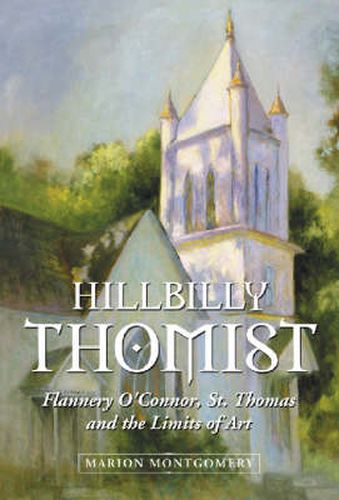Readings Newsletter
Become a Readings Member to make your shopping experience even easier.
Sign in or sign up for free!
You’re not far away from qualifying for FREE standard shipping within Australia
You’ve qualified for FREE standard shipping within Australia
The cart is loading…






In the spirit of St. Thomas Aquinas, the writings of Flannery O'Connor concern for place can best be seen in the immediacies of things and persons. It is in relation to St. Thomas’ teaching, then, that O'Connor becomes comfortable in her
place,
Andalusia, that small farm just outside the small town of Milledgeville in middle Georgia. The abiding relationship between place - Andalusia or elsewhere - and intellectual relationship comes out of human nature itself, evidenced in a person’s responses to this place at this time. The two challenges of O'Connor’s work grow out of the Thomist qualities inherent in her writings. First, as St. Thomas reminds us, O'Connor - and by extension her works - is not responsible for the moral rectitude of the reader. The second challenge is for the reader to understand that the understanding of
self
is the highest good to be pursued. With that as background, this detailed analysis of O'Connor’s works lays to rest the author’s own, self-deprecating description of herself as a
hillbilly
Thomist. Instead we see in O'Connor’s writing a high-sophisticated mind, an inconvenience to the many critics who dismiss her as anti-intellectual.
$9.00 standard shipping within Australia
FREE standard shipping within Australia for orders over $100.00
Express & International shipping calculated at checkout
In the spirit of St. Thomas Aquinas, the writings of Flannery O'Connor concern for place can best be seen in the immediacies of things and persons. It is in relation to St. Thomas’ teaching, then, that O'Connor becomes comfortable in her
place,
Andalusia, that small farm just outside the small town of Milledgeville in middle Georgia. The abiding relationship between place - Andalusia or elsewhere - and intellectual relationship comes out of human nature itself, evidenced in a person’s responses to this place at this time. The two challenges of O'Connor’s work grow out of the Thomist qualities inherent in her writings. First, as St. Thomas reminds us, O'Connor - and by extension her works - is not responsible for the moral rectitude of the reader. The second challenge is for the reader to understand that the understanding of
self
is the highest good to be pursued. With that as background, this detailed analysis of O'Connor’s works lays to rest the author’s own, self-deprecating description of herself as a
hillbilly
Thomist. Instead we see in O'Connor’s writing a high-sophisticated mind, an inconvenience to the many critics who dismiss her as anti-intellectual.